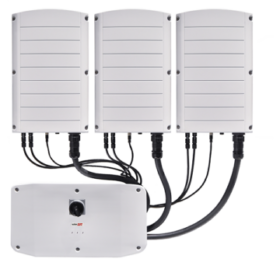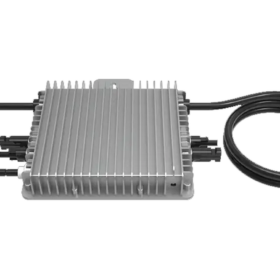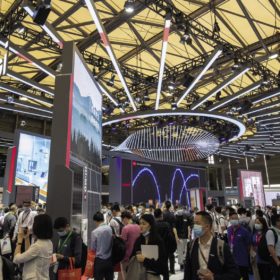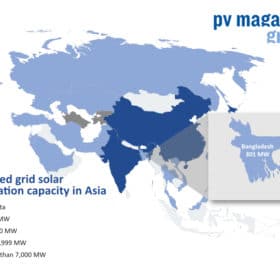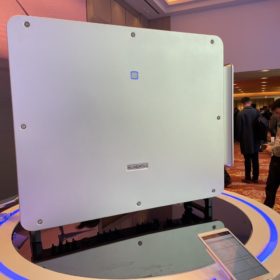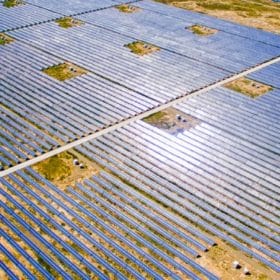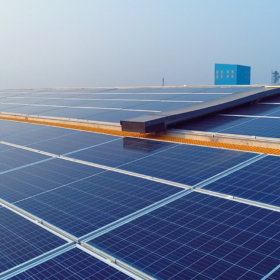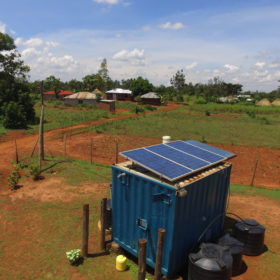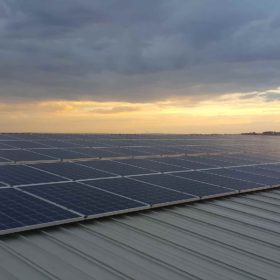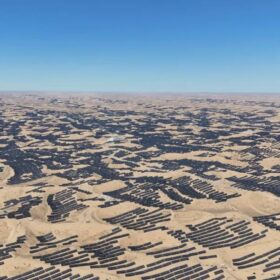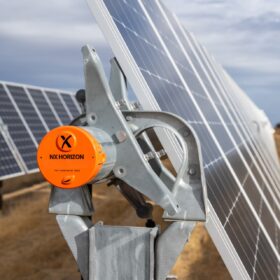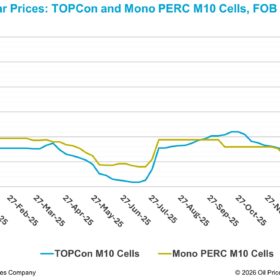Israel’s SolarEdge launches expanded line of commercial inverters
SolarEdge’s new three-phase inverters are available in variants up to 120 kW, with integrated monitoring and a modular design.
Micro-inverter for balcony solar modules
Two different devices designed by German manufacturer Bosswerk can feed up to 300 or 600 watts into the home network. The company offers a 12-year guarantee.
The long read: SNEC’s solar trends in 2021
All eyes are drawn to China every year for SNEC, the world’s biggest solar PV expo, as it invariably features a large number of new products from the key Chinese manufacturers. Vincent Shaw was on the scene in Shanghai this year and took the opportunity to take the industry’s pulse.
Government to finance 100 MW Bangladeshi solar plant
The federal government will provide INR968 crore of soft loans for a INR1307 crore, 100 MW solar park near the Jamuna river in Bangladesh’s Jamalpur district, where a second park of a similar size is being planned by Dhaka and a Chinese partner.
India installed 3.2 GW of solar in 2020
In large-scale solar, Adani was the largest developer by capacity, and Sterling & Wilson the preferred EPC partner. Tata Power Solar led in rooftop solar installations.
Sungrow unveils 325 kW string inverter
The device will go into mass production in the second half of this year. It features an efficiency of 99.01% and is claimed to be the most powerful string inverter ever launched on the market to date.
Sungrow solar inverter sales in India cross 7 GW
The Chinese manufacturer, which has a central and string inverter factory in Bengaluru, sold a minimum 3 GW of the cumulative sales last year alone. Going forward, it has a strong order book for the upcoming solar capacity too.
Best Power Equipments bets on solar
The electronics manufacturer says it will switch focus to solar panels and lithium battery storage as it launches an inverter series for rooftop PV.
BHEL seeks hybrid solar inverters for Nigerian project
September 10 is the last date to submit bids for supply, installation, and commissioning of hybrid solar inverter-cum-charge controllers of ratings 5 kVA (193 quantities), 10 kVA (32), and 15 kVA (5). All the inverters are to be delivered by November 12.
Strategies to prevent overvoltage-induced inverter disconnections
Australian scientists have identified seven methods to prevent PV losses when overvoltage-induced inverter disconnections occur. The methods include battery storage, reactive power inverters, export limits, distribution static synchronous compensators, the replacement of old conductors in power grids, load reconfiguration, and dynamic voltage restoration.
